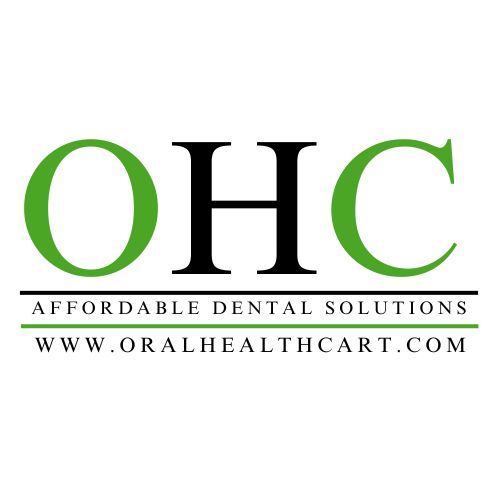Best Practices For Cleaning And Storing Dental Surgical Instruments
The Dental Cart
.jpg)
Best Practices For Cleaning And Storing Dental Surgical Instruments
Safety, hygienic practices, and accuracy are paramount in dentistry. Every dental procedure, especially surgical interventions, relies heavily on clean, sterile, and well-maintained instruments. Improper cleaning or storage of dental surgical tools not only compromises patient safety but can also damage equipment and harm your clinic’s reputation.
At Oralhealth Cart, we understand that investing in high-quality dental surgical instruments is only the first step. Ensuring they are properly cleaned and stored is equally important. In this guide, we’ll explore the best practices for cleaning and storing dental surgical instruments — practices that every modern dental clinic should adopt to ensure safety, longevity, and compliance.
Why Proper Cleaning and Storage Matter
Oral tissues and physiological fluids are directly in contact with dental surgical tools. This makes them susceptible to:
-
Cross-contamination
-
Biofilm buildup
-
Rust or corrosion
-
Mechanical damage
-
Premature wear and tear
Failure to follow proper protocols can lead to infection outbreaks, costly replacements, and legal liabilities. As a result, it is crucial to establish a strong instrument care regimen.
Step-by-Step Guide to Cleaning Dental Surgical Instruments
1. Pre-Cleaning – Immediate Rinse After Use
Right after the procedure, instruments should be rinsed under running water to remove visible debris, blood, and saliva. Do not allow contaminants to dry, as dried biofilm becomes harder to remove and more hazardous.
Pro Tip by Oralhealth Cart: Use a holding solution or enzymatic spray if instruments cannot be cleaned immediately. This prevents organic material from adhering.
2. Manual Cleaning
Manual cleaning is often necessary before sterilization, especially for delicate or intricate tools.
-
Use a soft-bristle brush or nylon brush to scrub instruments.
-
Clean hinges, grooves, and serrations carefully.
-
Use pH-neutral, instrument-safe detergents.
-
Establishing a robust instrument care regimen is therefore essential.
Rinse thoroughly with distilled or deionized water to prevent mineral deposits.
3. Ultrasonic Cleaning
Ultrasonic cleaners offer deep cleaning without damaging delicate parts.
-
Load instruments loosely to avoid contact and scratching.
-
Use only approved ultrasonic cleaning solutions.
-
Run cycles for 5–10 minutes, depending on contamination level.
-
Rinse thoroughly after each cycle.
Note: Not every tool can be used for ultrasonic cleaning. Check the manufacturer’s recommendations or consult with Oralhealth Cart experts.
4. Drying
Moisture left on instruments can cause rust or pitting during sterilization.
-
Use lint-free towels to pat dry, or let it air dry in a hygienic setting.
-
Steer clear of wiping with regular cloths as they may leave fibers or lint behind.
Sterilization: A Non-Negotiable Step
Sterilization is the final and most critical step in ensuring instruments are safe for reuse.
Autoclave Guidelines:
-
Make use of autoclaves that adhere to Class B or S requirements.
-
Instruments should be placed in indicator-striped sterilizing pouches.
-
Do not overload the chamber — allow steam circulation.
-
Follow correct time-temperature-pressure protocols (typically 121°C for 15 mins or 134°C for 3 mins).
Important: Allow instruments to dry completely before removing them from the autoclave to prevent recontamination.
Proper Storage of Dental Surgical Instruments
Cleaning and sterilizing are only effective if followed by proper storage. Here’s how to do it right:
1. Use Sterile Pouches or Wraps
-
Sterilized instruments should be sealed in autoclave-compatible pouches until use.
-
Label them with date, time, and batch number for tracking.
2. Store in Clean, Dry Cabinets
-
Cabinets should be dust-free, well-ventilated, and closed to prevent exposure.
-
Use trays or instrument racks that prevent metal-on-metal contact.
-
Avoid plastic bags or non-sterile containers.
3. First-In, First-Out (FIFO) Rotation
Use older sterilized packages before newer ones to reduce the risk of expired sterility.
4. Maintain Separate Zones
Have clearly marked zones in your clinic:
-
Dirty (used instruments)
-
Clean (after washing but before sterilization)
-
Sterile (after autoclaving)
This minimizes cross-contamination and maintains workflow hygiene.
Common Mistakes to Avoid
Avoid these errors that can compromise instrument safety:
-
Skipping pre-cleaning
-
Using tap water for final rinsing
-
Storing wet or damp tools
-
Reusing damaged sterilization pouches
-
Touching sterilized instruments with ungloved hands
At Oralhealth Cart, we regularly advise dental professionals on how to avoid these pitfalls and maintain instrument integrity.
Where to Purchase Storage & Cleaning Materials in India
Looking for certified and affordable dental surgical instruments or cleaning supplies?
Oralhealth Cart offers:
-
Ultrasonic cleaners
-
Sterilization pouches and racks
-
Surgical trays and cassettes
-
Surgical-grade brushes and enzymatic solutions
-
Complete dental instrument sets with warranties
We ship PAN India with dedicated support to help you set up and maintain your instrument protocols efficiently.
Make Hygiene Your Daily Habit
Mastering the best practices for cleaning and storing dental surgical instruments is more than a responsibility — it’s a commitment to safety, performance, and excellence in patient care. Consistent implementation of these practices will increase the life of your tools, reduce operational costs, and ensure compliance with regulatory standards.
At Oralhealth Cart, we’re proud to support dental professionals across India with certified tools, expert advice, and superior service. Because the first step to a healthy smile is a clean instrument.
Categories: Prostho Instruments


 Oralhealthcart Products
Oralhealthcart Products

